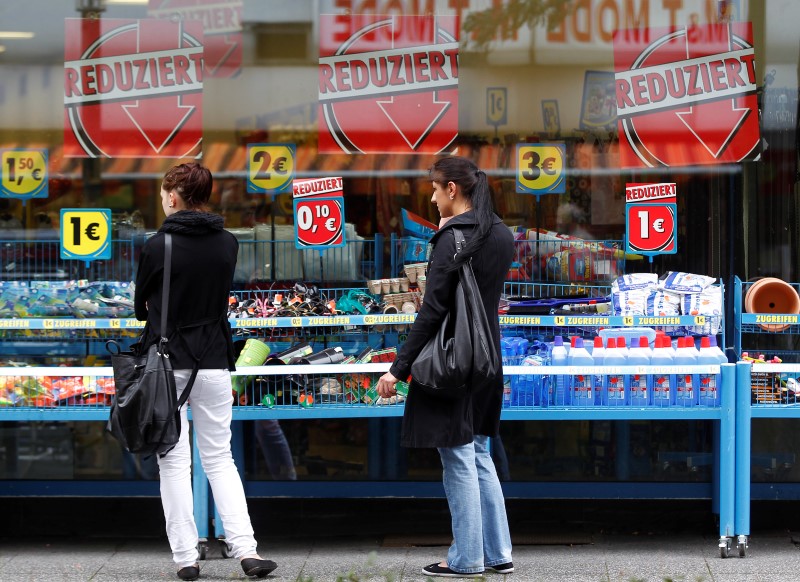By Michael Nienaber
BERLIN (Reuters) - German inflation unexpectedly slowed in December and the rate for the whole of 2015 fell to its lowest level on record, boosting the purchasing power of households who are enjoying record employment and rising wages.
The surprisingly weak price data could, however, add pressure on the European Central Bank to further loosen its monetary policy, after it deployed a bare-minimum easing package last month.
German prices, harmonised to compare with other European countries (HICP), rose by 0.2 percent on the year after a 0.3 percent increase in November, preliminary data from the Federal Statistics Office showed on Monday.
The reading came in below the consensus forecast of 0.4 percent in a Reuters poll, and was far from the ECB's target for the whole euro zone of just below 2 percent - a goal it is struggling to achieve despite unleashing unprecedented stimulus.
Capital Economics analyst Jennifer McKeown said the data confirmed that the relative strength of the German economy was exerting no upward pressure on inflation and that "the ECB will need to do more to hit its inflation target".
It also suggested that the euro zone release, due out on Tuesday, might fail to match expectations as well, she added.
For the whole currency bloc, economists polled by Reuters expect the December inflation rate to have increased to 0.3 percent from 0.2 percent in November.
FALLING FOOD PRICES
For the whole of 2015, Germany's harmonised inflation rate fell to 0.1 percent - the lowest reading since 1995 when the statistics office started compiling data in that form, an official said.
Data published earlier on Monday showed that favourable economic conditions and an influx of foreign workers boosted employment in Germany to its highest since reunification in 1990, as the jobless rate hovers at a historic low.
Despite record-high employment and rising wages, it would probably take until summer before headline inflation will cross the 1 percent threshold again, said ING Bank analyst Carsten Brzeski.
"All of this means that German consumers are currently enjoying the best of both worlds: a strong labour market with decent wage increases and low inflation," he noted, adding this would boost consumers' purchasing power and private consumption.
On a non-harmonised basis, German annual inflation fell to 0.3 percent in 2015 - the lowest level since 2009 - and it inched down to 0.3 percent in December.
A break-down of the non-harmonised data showed energy prices were the main drag on the December figure, but they fell less sharply than in November. At the same time, food became cheaper.

The statistics office said it would publish final consumer price data for December on Jan 19.